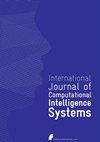Obstacles Uncovering System for Slender Pathways Using Unmanned Aerial Vehicles with Automatic Image Localization Technique
IF 2.9
4区 计算机科学
International Journal of Computational Intelligence Systems
Pub Date : 2023-10-16
DOI:10.1007/s44196-023-00344-0
引用次数: 1
Abstract
Abstract In this study, unidentified flying machines are built with real-time monitoring in mid-course settings for obstacle avoidance in mind. The majority of the currently available methods are implemented as comprehensive monitoring systems, with significant success in monitored applications like bridges, railways, etc. So, the predicted model is developed exclusively for specific monitoring settings, as opposed to the broad conditions that are used by the current approaches. Also, in the design model, the first steps are taken by limiting the procedure to specific heights, and the input thrust that is provided for take up operation is kept to a minimum. Due to the improved altitudes, the velocity and acceleration units have been cranked up on purpose, making it possible to sidestep intact objects. In addition, Advanced Image Mapping Localization (AIML) is used to carry out the implementation process, which identifies stable sites at the correct rotation angle. Besides, Cyphal protocol integration improves the security of the data-gathering process by transmitting information gathered from sensing devices. The suggested system is put to the test across five different case studies, where the designed Unmanned aerial vehicle can able to detect 25 obstacles in the narrow paths in considered routs but existing approach can able to identify only 14 obstacle in the same routes.基于自动图像定位技术的无人机细长路径障碍物发现系统
在本研究中,为了避免障碍物,在中途设置中构建了具有实时监控的不明飞行器。目前大多数可用的方法都是作为综合监测系统实施的,在桥梁、铁路等监测应用中取得了重大成功。因此,预测模型是专门为特定的监测设置而开发的,而不是目前方法所使用的广泛条件。此外,在设计模型中,采取的第一步是将程序限制在特定的高度,并且为取料操作提供的输入推力保持在最小值。由于高度的提高,速度和加速度单位被故意调高,使其能够避开完整的物体。此外,采用高级图像映射定位(AIML)进行实现过程,识别出正确旋转角度下的稳定位点。此外,Cyphal协议集成通过传输从传感设备收集的信息,提高了数据采集过程的安全性。该系统在五个不同的案例研究中进行了测试,其中设计的无人机能够在考虑的路线中检测狭窄路径中的25个障碍物,而现有的方法只能识别相同路线中的14个障碍物。
本文章由计算机程序翻译,如有差异,请以英文原文为准。
求助全文
约1分钟内获得全文
求助全文
来源期刊

International Journal of Computational Intelligence Systems
工程技术-计算机:跨学科应用
自引率
3.40%
发文量
94
期刊介绍:
The International Journal of Computational Intelligence Systems publishes original research on all aspects of applied computational intelligence, especially targeting papers demonstrating the use of techniques and methods originating from computational intelligence theory. The core theories of computational intelligence are fuzzy logic, neural networks, evolutionary computation and probabilistic reasoning. The journal publishes only articles related to the use of computational intelligence and broadly covers the following topics:
-Autonomous reasoning-
Bio-informatics-
Cloud computing-
Condition monitoring-
Data science-
Data mining-
Data visualization-
Decision support systems-
Fault diagnosis-
Intelligent information retrieval-
Human-machine interaction and interfaces-
Image processing-
Internet and networks-
Noise analysis-
Pattern recognition-
Prediction systems-
Power (nuclear) safety systems-
Process and system control-
Real-time systems-
Risk analysis and safety-related issues-
Robotics-
Signal and image processing-
IoT and smart environments-
Systems integration-
System control-
System modelling and optimization-
Telecommunications-
Time series prediction-
Warning systems-
Virtual reality-
Web intelligence-
Deep learning
 求助内容:
求助内容: 应助结果提醒方式:
应助结果提醒方式:


